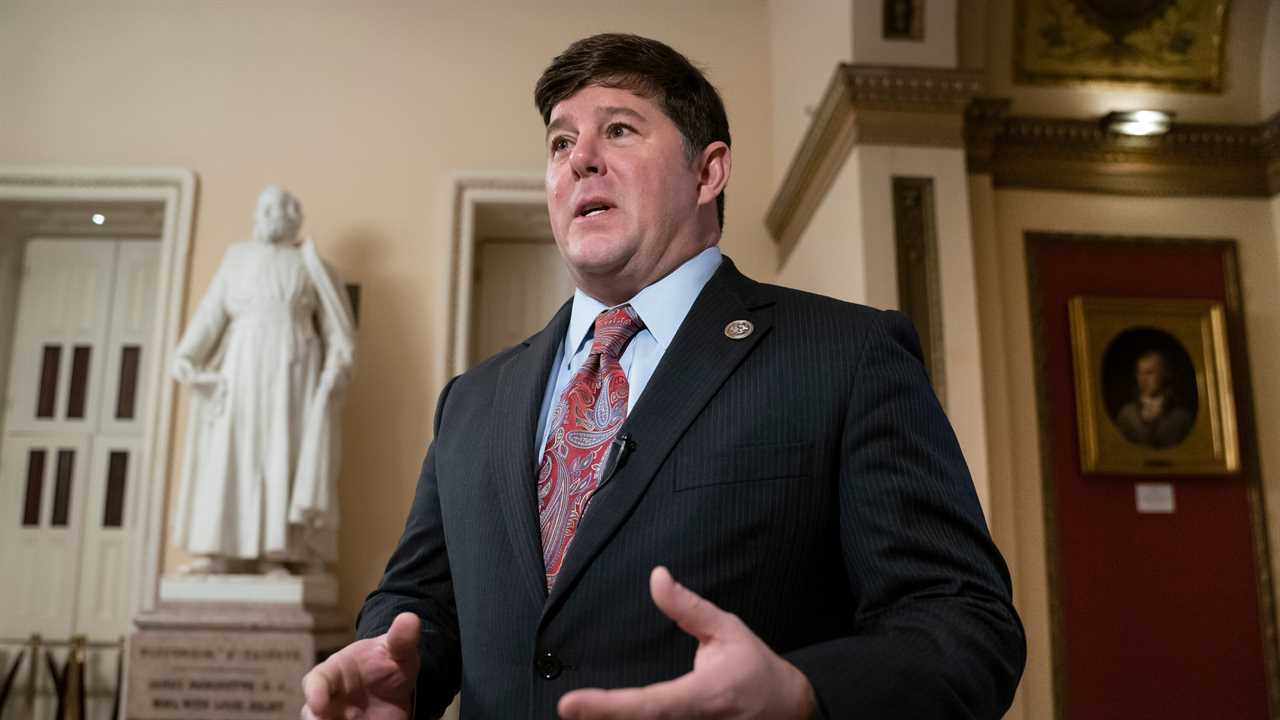
WASHINGTON — The House Ethics Committee is investigating Representative Steven M. Palazzo, Republican of Mississippi, for potential misuse of funds, after a preliminary inquiry found that he engaged in what investigators called a “concerning pattern” of spending more than $80,000 in campaign money on a $1.2 million waterfront house that he was trying to sell.
In a report published on Monday, the independent board of the Office of Congressional Ethics said it had voted unanimously to recommend that the House panel broaden its investigation into the fifth-term congressman’s conduct — including subpoenaing him, his brother and a dozen others — because there was “substantial reason to believe that Representative Palazzo converted funds to personal use to pay expenses that were not legitimate.”
In a brief statement from the leaders of the secretive Ethics Committee, Representative Ted Deutch, Democrat of Florida and the chairman, and Jackie Walorski of Indiana, the senior Republican, said that the panel would continue its inquiry to “gather additional information necessary to complete its review.”
At issue, among other allegations, the report said, was a “concerning pattern of campaign expenditures on a large riverfront home which Representative Palazzo owned and rented to Palazzo for Congress as an ostensible campaign headquarters.” Investigators also alleged that Mr. Palazzo may have improperly used campaign funds to pay his brother and used his position in Congress to do a special favor for his brother.
The four-bedroom home, which Mr. Palazzo referred to as the “River House,” was outfitted with a boat dock and a guest cottage, and was mainly used as a weekend home by the congressman’s family, which had owned it for about 20 years, according to the findings.
The property, situated on the Tchoutacabouffa River north of Biloxi, appraised in 2017 for $1.175 million, according to the report, and Mr. Palazzo had been trying unsuccessfully to sell it. He planned to make repairs and then “put it back on the market and get it off his hands,” but potential buyers kept balking because of “the extensive repairs the house needed,” the report said.
“I just want to sell it or find some contractors to fix it without costing an arm and a leg and sell it for a little more,” Mr. Palazzo wrote in an email to a real estate agent in January 2018.
Weeks later, Mr. Palazzo’s campaign committee entered into a lease with the congressman to rent the house as a campaign headquarters for $3,000 per month. The lease was equal to the amount the congressman owed each month on the property, the report said.
Investigators found that the campaign also spent more than $11,000 on utilities at the house, $6,300 on landscaping, $1,500 on plumbing, $1,300 on heating and air conditioning, $960 on a security system, $690 on cleaning and $200 on pest control, for a total of more than $82,000 spent at the property.
They identified other home improvement charges they said may have been connected to the house, but Mr. Palazzo’s campaign committee either did not have or did not provide records of the expenses, they said. Between April 2018 and July 2019, Mr. Palazzo’s campaign committee reported about $1,500 spent at various Lowe’s home improvement stores.
“The wide array of campaign-funded improvements to the home appear to have been directly related to the sale of the property rather than any true campaign purpose,” investigators wrote.
Eventually, Mr. Palazzo sold the property in September 2019 for $485,000, the report stated.
Investigators also questioned the role of the congressman’s brother, Kyle Palazzo, in the campaign, stating that his work “may not have justified the salary he received.” He was paid more than $23,000 in the last campaign cycle, according to the report.
One staff member told congressional investigators that Kyle Palazzo “didn’t have a place to live” and “was staying at the River [H]ouse,” the report said.
“The potential use of the River House as a residence, combined with a lack of evidence that the River House was an actual campaign headquarters, is in direct contrast with claims that the River House was a bona fide campaign headquarters,” investigators wrote.
The investigators also said that it appeared that the congressman had used official resources to try to get the secretary of the Navy to intervene personally to upgrade Kyle Palazzo’s military status so he would be eligible to re-enlist.
In response to the findings, a lawyer for Mr. Palazzo said the inquiry had begun because of “unfounded allegations” by a political opponent.
“At all times, Representative Palazzo acted in good faith to comply with Federal Election Commission rules,” the lawyer, Gregg Harper, wrote in an October letter made public this week. “Any expenses related to the River House property that were paid by the campaign were, in fact, allowable campaign expenses and were in compliance with all rules and applicable laws.”
Mr. Harper also argued that the congressman “did not do anything ‘special’ for his brother.”
His congressional office did not respond to a request for comment.
The report on Mr. Palazzo was released the same day the ethics board said it was recommending that the House panel continue to review the actions of Delegate Michael San Nicolas, Democrat of Guam.
The allegations against Mr. San Nicolas include that he may have reported false information in his Federal Election Commission filing, accepted cash contributions that were in excess of federal limits and converted campaign funds to personal use.
The board recommended the investigation into the delegate continue because there is “substantial reason to believe” the allegations.
He did not respond to a request for comment.
Did you miss our previous article...
https://trendinginthenews.com/usa-politics/biden-gains-two-key-economic-advisers






